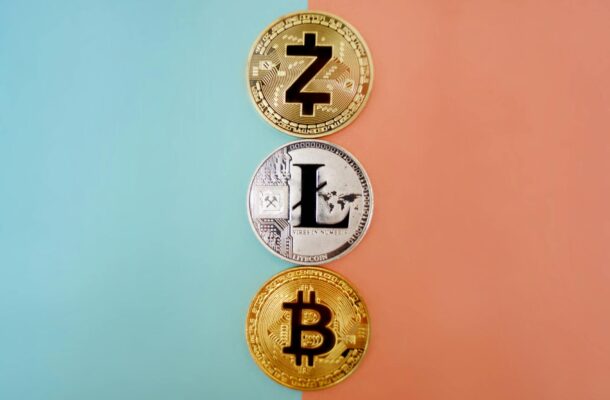Will digital currencies enable digital dictatorships?

Digital coins were created as an alternative to official currencies but are now beginning to pique the interest of governments around the world. However, any tool can be used for good or ill, and their convenience could be misused to increase an authoritarian government’s control over the population. Indeed, central bank digital currency could establish a new digital dictatorship based on a centralized digital public infrastructure (DPI) .
The United Nations Development Program’s Digital Strategy 2022-2025 recognizes that digital technologies can pose potential risks and challenges, especially for vulnerable groups, as well as benefits. These risks can take many forms, but the most serious are risks to human rights.
A state digital currency would see every citizen’s virtual account or digital wallet located in the same central bank controlled by the state. Whatever theoretical safeguards were put in place, this would ultimately give the state control of the money of that nation’s citizens and organizations. Officials would be able to look into your pocket, study your income and expenses, and, if they deemed it necessary, manage your money for you. In fact, the money you earn will not belong to you, but to the state.
Such a digital currency would have many different functions the state could remotely control. This influence could be extended over all citizens at once, or to some citizens based on some common characteristic. However, nothing would prevent a government from specifically influencing a specific citizen through access to his digital wallet in a system a government created specifically for this purpose.
Those who support the introduction of a digital currency say that citizens will be able to use a range of new functions for managing this money in more efficient ways, but remain silent about the limitless possibilities of government control over your digital wallet.
Implementation
The initiation of a centralised digital currency might begin with population groups who depend on government funding, and so cannot refuse, since they have no other income except from the state. Welfare recipients might be paid digitally, for example, to prevent them spending that money on alcohol or gambling. Pensioners and state employees such as teachers or the military might follow, and once these socially respected professions agree, the process could spread to the rest of the population. At the same time, paper money could be gradually withdrawn from circulation, as credit cards, phone apps and other digital payment methods have already largely supplanted it.
New money can also be introduced with a carrot as well as a stick. The authorities in Thailand plan to introduce a CBDC in the first quarter of 2024 and are promising to give about $300 to all residents to secure their support, although this digital money can only be spent within a few kilometers from home.
Nigeria, Africa’s largest country with a population of 214 million, planned to launch eNaira, a government-owned CBDC digital currency, but ongoing challenges have seen the initial idea of a centralized CBDC abandoned in favour of a new cryptocurrency, cNGN, pegged to the national currency. While the Central Bank of Nigeria would have solely controlled eNaira, the cNGN cryptocurrency will be managed by the African Stablecoin Consortium.
The adoption of CBDC in countries where it has been introduced is slow. So far, there is not a single country that has completely switched to digital currency, however the risk it may pose to democracy is real and growing.
Democracy
Democracies hold their citizens to be the ultimate source of power, and choose their governments in fair, competitive elections which give the winning party the authority to govern for a limited period of time. However, even in a democracy, a centralised digital currency would tend to erode the public’s control over its own destiny, tempting politicians to use it as an instrument of control rather than administrative convenience.
Citizens who complained to the authorities about the poor condition of a road, or a case of corruption, might find the state preferred to silence them by limiting the functions of their digital wallet, rather than addressing the problem. China’s social credit system has been widely criticised for imposing the state’s political will on its citizens, but the draconian restrictions placed on citizens of western nations during the pandemic shows that even democracies are willing to subvert individual rights and liberties in radical, sweeping ways with little thought or consultation.
If Australia had been using a centralised digital currency during the COVID pandemic, for example, we would surely have seen the spending of digital currency restricted to shops within a small radius of people’s homes, or limited petrol or public transport purchases, to control people’s movements. A centralised digital currency turns money from a universal medium of exchange into company tokens which can only be redeemed at the company store, and citizens into vassals of the state.
Every emergency implementation of such measures is promoted as a temporary solution to a pressing social problem, but elements of greater control always remain after each successive precedent and implementation.
By limiting some citizens and not limiting others who are more loyal or directly work for the authorities, a social rating system could be created in the democratic world as well as authoritarian states such as China. Despite theoretically earning the same wage, a digitally limited citizen would not be able to exercise the freedom that a citizen loyal to the authorities would enjoy. Restrictions might be imposed after a “wrong” statement or like on social networks, or when publishing a “wrong” opinion or complaint online. This may seem extreme, but people are already “cancelled” for expressing views which were mainstream just a few years ago, or at still quietly held by the vast bulk of the population.
A centralised digital currency is therefore very different from the traditional concept of official legal tender, and its potential social and political implications must be considered beyond the argument that it would be merely an adminstrative modernisation. We have seen how other digital innovations, including social media, have been appropriated by large corporations or weaponised by political interests, and the temptation to misuse a centralised digital currency would be even greater in scope.
Innovations in digital democracy could help revitalise democratic systems for a modern age, and digital payment methods have already revolutionised the ways we shop, invest and do business, but the risks involved in a centralised digital currencies may still make them a bridge too far to think of crossing.

Evgeny Parfenov is a techno-entrepreneur in the field of additive technologies and the developer of a popular 3D printer.














